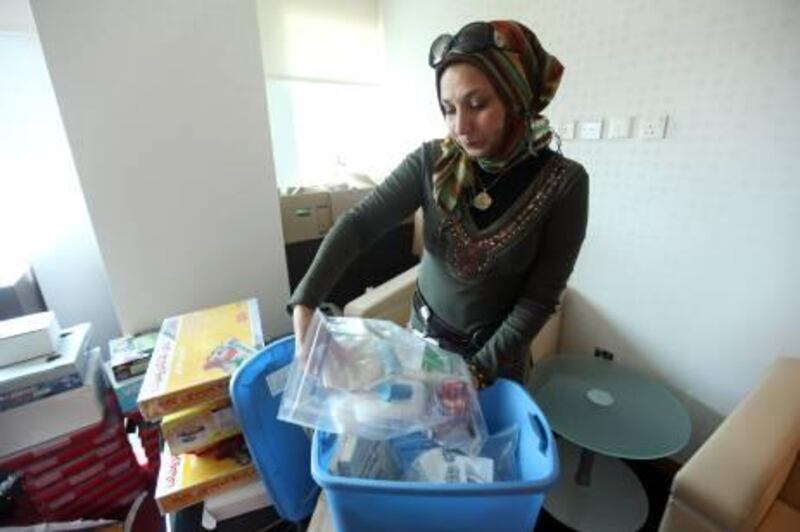A touring lab of chemistry sets, tadpole habitats, egg incubators and interactive fuel cell models will begin visiting schools next week as part of a larger effort to drive students toward careers in science. Science Express is a minivan run by the Emirates Foundation for Philanthropy, filled with science kits and games for demonstrations based on the classroom curriculums of the public and private schools it will visit.
The travelling classroom focuses on students from grades 4 to 10, before they are forced to decide whether they will pursue a science or a literary stream of study, said Dr Abdulla Ismail Abdulla, the senior executive adviser of the science and technology programme at the Emirates Foundation. It is expected to reach 10,000 students this year in Abu Dhabi, Al Ain and Al Gharbia, more than double the number involved when the project launched last year.
"This nation cannot be strong and competitive without being competent in science," he said. "The future for science in the UAE is bright, but now we need locals capable of working in the field so that their lives are bright as well." Dr Abdulla, who is also a professor of electrical engineering at UAE University, said education officials are starting to recognise opportunities expected to emerge in the energy and microelectronic sectors as part of Abu Dhabi's 2030 plan.
"Science graduates have no problem finding jobs, but it will be a long time before we graduate enough engineers and enough scientists," he said. "We need to start getting these young children interested in these kinds of careers now, for the future." Science Express will carry more than 70 kits to cover about 250 scientific concepts across disciplines and age groups, said Abeer Gibril, the project coordinator. The kits include experiments with static electricity; human dissections with three-dimensional computer anatomy; and tiny rod and connector components for teaching basic building and engineering.
One kit includes a tiny model house with solar panels, a greenhouse and a wind turbine that are able to produce power. Most students, males especially, tend to choose the literary stream over science, according to Ali Ibrahim, an assistant professor at UAE University's college of education and an expert on early education. "Maybe it is because the curriculum is difficult or is not presented in a way that attracts them, or maybe they think they want an easier career, but for some reason they fall out of love with science by the 10th grade," he said. While most of the feedback has been positive, a handful of teachers have complained that the project "is a waste of time," Ms Gibril said.
"Some schools use certain techniques and don't like that we do not explain every detail of what we do," she said. "We are focusing on encouraging the students and making it fun so that they want to continue learning about science and become passionate about it." The project has excited students who normally would not take an interest in classroom demonstrations, said Lamees J. Rahman, who runs the science labs at Al Noor Primary School in Abu Dhabi. She helped the team prepare solar energy experiments last year.
"They show things in a different way to broaden their minds and get them excited about energy," she said. "It's always good to have someone from the outside come in and teach the students in a way that they aren't used to."
econroy@thenational.ae






